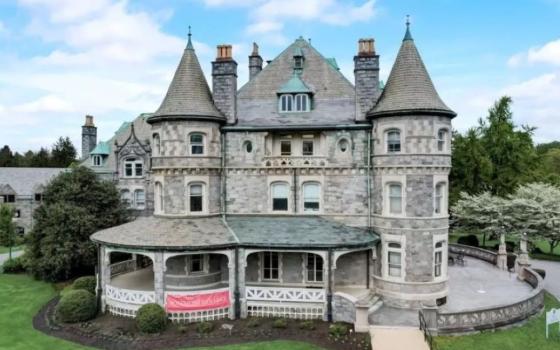Not long ago, a friend of mine, Dolly Pomerleau, who lives in Brentwood, Md., told me that the mayor in that small municipality (just northeast of Washington, D.C.) routinely began town council meetings with the Our Father. She was shocked, and so was I.
In a society that forbids the “establishment of religion” and welcomes multiple faith traditions, public prayer – least of all sectarian prayer – has no place at official government meetings at any level.
Many citizens are Jewish or Muslim or Hindu or atheist, and the Lord’s Prayer — a distinctly Christian prayer — is not what they expect to hear when they go to a town meeting seeking a variance for a new porch.
This is similar to the case from Greece, N.Y. that the U.S. Supreme Court has recently agreed to hear. As Rev. Barry Lynn, an ordained minister in the United Church of Christ and the head of Americans United for Separation of Church and State, commented on that case, “A town council meeting is not a church service, and it shouldn’t seem like one.”
I referred my friend Dolly to Americans United for action, and she pursued it. The organization warned the mayor about his prayers, and a lawsuit was filed.
But before that lawsuit really advanced, the voters of Brentwood tossed out the mayor and every council member in a transformative election. Dolly was a leading election organizer. Prayer at council meetings was not the only issue in the election, but it was one of them.
I remember the first time I heard about this kind of issue. As a student in a Catholic high school, I was told that public schools in the U.S. routinely had students recite the “Protestant” Our Father, and that was one reason why Catholics needed to start their own school system, lest we be tainted (I presume) by a prayer that had but 2-3 phrases different from the Catholic version!
But religious minorities are always the most sensitive to these issues, and Catholics were a distinct and even persecuted minority in 19th century America. We are not a “persecuted minority” today.
Moreover, prayer in public schools — of any kind — was forbidden by the Supreme Court in the 1962 landmark case, Engel v. Vitale. Now, it’s time to apply a similar restriction to government meetings as well, including those of the U.S. Congress.
If someone wants to pray (and God knows, Congress and our governments at all levels need prayers!), then let’s have a neutral moment of silence in which each can pray in his and her own tradition, or think deep philosophical thoughts (if atheist or agnostic).
Maybe some legislators would use that silence to resolve to actually accomplish something for the good of society!




